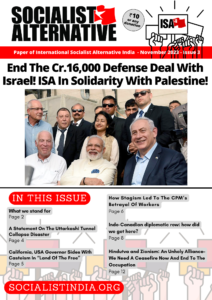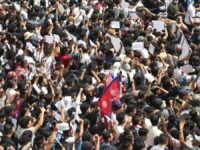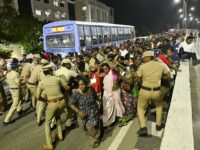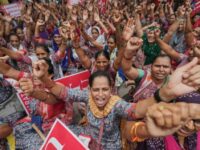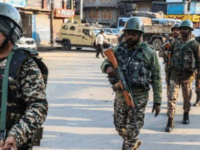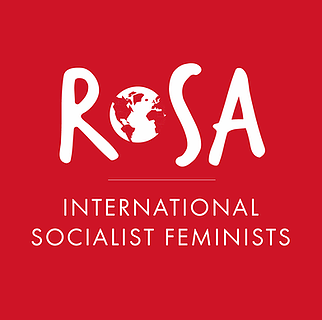Trumped-up charges against Rahul Gandhi exposes weakness of the government
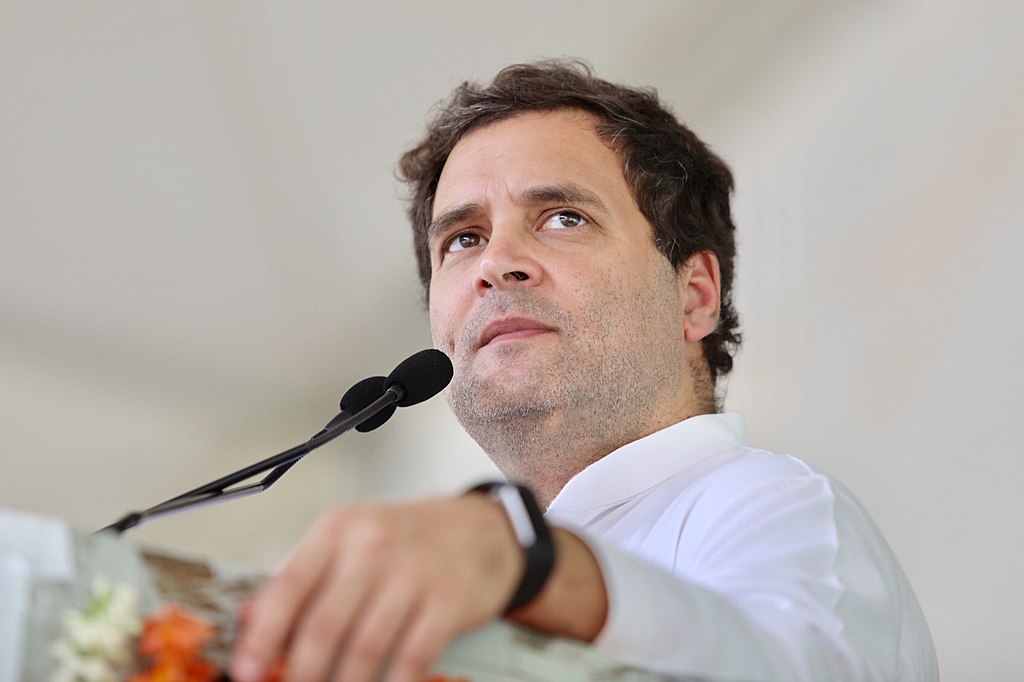
But a genuinely Left alternative is needed to fight the BJP’s agenda
On March 23, Congress Party’s most prominent leader Rahul Gandhi was disqualified as a Lok Sabha MP less than 24 hours after he was convicted and sentenced to two years in prison on the basis of a criminal defamation case dating from 2019.
An MP can be disqualified if sentenced to at least 2 years of imprisonment. However, the disqualification is supposed to take effect only “after three months have elapsed” from the date of conviction if an appeal has not been registered by then before a higher court. The speed with which Gandhi was expelled from Parliament and his seat declared vacant, despite his legal right to challenge the conviction, underscores the political motivations behind it — so does the fact that the case was suddenly revived at the request of the plaintiff (Purnesh Modi, a BJP MLA) at the peak of a weeks-long campaign by the ruling party to try and silence Gandhi (including by repeatedly switching off his microphone in the Lok Sabha and by expunging parts of his speeches from the parliamentary records). Furthermore, the case was filed in Gujarat, a state ruled by the BJP for 27 years, instead of Karnataka, where he made the arguably “defamatory” remark.
Truncated charges
As for the charges themselves, they are ludicrous. During a speech the Congress leader gave on April 13, 2019 in an electoral rally in Kolar, Karnataka, he asked: “Why do all these thieves have Modi, Modi, Modi as a common surname?” in reference to the Prime Minister and to two corrupt fugitive businessmen, Nirav and Lalit Modi. As a result, Purnesh Modi lodged a criminal complaint against Rahul Gandhi accusing him of “defaming the entire Modi community”. The very concept of a “Modi community” is entirely fabricated, as people with that surname live across various parts of India and are from various castes and religious faiths.
If defeated in appeal, Gandhi would not have the right to stand in the next general election in 2024. His condemnation is thus a transparent attempt to politically silence him, at a time he was raising valid and embarrassing questions about the BJP government and Modi’s incestuous connections to Gautam Adani and the latter’s business empire — which the recent revelations from US short-seller Hindenburg Research have brought into tighter public scrutiny. The Congress is among a group of opposition parties that have sought a joint parliamentary committee investigation into this issue. This has touched a raw nerve for Modi, whose whole political career is closely tied up to the rise of the Gujarat billionaire, accused by the US firm report of having pulled the “largest con in corporate history”.
However, this attack has to do with far more than Rahul Gandhi and his party. It fits into a wider and escalating pattern of repressive methods aimed at voices critical of the BJP’s rule, often branded as “anti-national”. It is with a similar stroke that the government banned the BBC documentary exposing Modi’s role in the Gujarat communal massacre from being shown in India; along with the Hindenburg report, it was presented as an attack on India by hostile foreign powers. In March, BJP representatives had also accused Gandhi of calling upon the US and Europe to “interfere in the internal affairs of India” during a visit he made to London — a somewhat ironic line of arguments given that the criminal defamation law used to sentence him is a relic from British colonial rule.
Independent judiciary?
Since then, a mantra from the ruling party to stand over this case has been to uphold the integrity of the judiciary, and to stress that “In a democracy, nobody is above the law.” But is that really so?
On January 24 this year, a local court in Gujarat acquitted all the accused in a communal massacre perpetrated by Hindutva men against 17 Muslims in Delol village in February 2002, for “lack of evidence” (despite 190 witness testimonies). On March 2, three of the four men accused of the brutal gang rape, torture and murder of a 19-year-old Dalit woman in 2020 in Hathras district, Uttar Pradesh, were acquitted by a local court. On April 1, all the 39 accused of another communal carnage committed in May 1987 against 72 Muslims in Malyana, Uttar Pradesh, by troops from the Provincial Armed Constabulary and armed locals, were acquitted by a local court in the now BJP-ruled State.
The double standards of the Indian judicial system, delivering a maximum sentence for a mere quip while setting free rapists and communal butchers, is on full display. Those who have expelled Gandhi for supposed defamation are themselves longtime fervent adepts of outright abusive, inflammatory and communalist rhetoric, from glorifying rape to excusing Islamophobic violence and more. During the same 2019 election campaign, current Home Affairs Minister Amit Shah compared Muslim migrants from Bangladesh to “termites” and promised to throw them into the Bay of Bengal, but was of course never charged for saying so.
Defend freedom of speech — but let’s not stop there
ISA condemns the political persecution of Rahul Gandhi, but also of the many activists, journalists, trade unionists, protesters and others whose basic democratic rights and freedom of expression are being trampled upon every day by this increasingly authoritarian government.
However, an effective struggle against the latter needs to reckon with the fact that while levying legitimate accusations at Modi’s regime, Gandhi’s Congress Party does not represent a genuine alternative for the working and oppressed people of India. The Congress’s own political record gives a reserve of ammunition for the BJP to counter-attack and play the moral high ground, which the ruling party has obviously not hesitated to use. After all, Adani did not only benefit from the BJP’s economic policies but was already an established capitalist magnate before, thanks in part to favorable business deals undertaken during the Congress-led UPA rule.
Shashi Tharoor, a Congress MP from Kerala, recently commented: “To my mind the fact that Mr Adani or any other businessmen benefits from government’s decisions is fine, because we are the party of liberalization which stood for the opening up of the economy”. Similarly, BJP leaders are quick to remind people of the Emergency period under Indira Gandhi whenever the Congress calls out the threat to democracy represented by the BJP and the RSS.
The struggle against this government’s anti-democratic rampage and the struggle against the capitalist system of exploitation are two faces of the same medal. As long as capitalism exists, regardless of which party holds power at the center, super rich corporate gangsters a la Adani, who pillage the country’s economy for their own benefits while hundreds of millions languish in poverty, will thrive and will need the brutal arm of the state and of its appendages to perpetuate their rule and keep the majority of the population in check. That is why the workers, poor peasants and oppressed people of India need not only to defeat the BJP regime, but also build their own socialist alternative to defeat the rotten system that stands behind it.
